Update Notices for Teamscale 2025.6
Teamscale 2025.6 is now available
- The Docker image
cqse/teamscale:2025.6.0is now available on Docker Hub - You can also download Teamscale as a ZIP archive here
2025.5 Deprecated SPCop Upload Format
The SPCop upload format has been deprecated and will be completely removed with version 2025.7.
2025.5 Removed Legacy API: Pre-Commit 2 REST API
The pre-commit 2 REST API, unused by Teamscale's own IDE plug-ins since version 9.3, has been completely removed with version 2025.5.
Action required: If you are using the API to make pre-commit requests, either update to the new /api/projects/{project}/pre-commit3 REST API or, preferably, use the command-line client for developers (teamscale-dev) to perform your requests.
2025.4 Removed feature: Timespan-based threshold configurations
The Timespan-based threshold configurations section of the "Threshold Configuration List" project option has been removed, as this functionality caused inconsistencies when combined with certain other features and was rarely used. This change does not affect the project's default threshold configuration.
2025.2 .NET 8 Required (for analysis of C# code)
Starting with version 2025.2, the Teamscale server will require .NET 8 to execute the internal analysis tools StyleCop, SonarLint and SecurityCodeScan.
Action required: In case you are not using a Docker-based deployment, please make sure to update to .NET 8 framework.
2024.9 Java 21 Required (Teamscale server application)
Starting with version 2024.9, the Teamscale server will require Java 21 to be executed.
Action required: In case you are not using a Docker-based deployment, please make sure to update the JRE used for executing Teamscale to Java 21.
2024.9 Java 21 Required (teamscale-dev)
Starting with version 2024.9, the platform-independent download (teamscale-dev.zip) of teamscale-dev will require Java 21 to be executed.
Action required: In case you are not using the self-contained platform-dependent teamscale-dev download (teamscale-dev-windows-x86_64.zip, etc.), please make sure to update the JRE used for executing teamscale-dev to Java 21.
2024.8 Disabled Legacy API: Update .NET Profiler, ADO Plugin & REST API calls
From version 2024.8 the Legacy API has been disabled by default, and we plan to completely remove it with 2025.1 (or later).
Action required: Make sure you update the Teamscale .NET Profiler, Teamscale Plugin for Azure Dev Ops or scripts that interact with Teamscale's Legacy REST API to their newest versions.
To temporarily re-enable the Legacy API (in case you cannot upgrade a part of your setup yet), you can set the system property com.teamscale.legacy-api.enabled to true.
Teamscale will show a warning banner to administrators if usages of the Legacy API have been detected since the last instance restart. You will find the used legacy services in the System -> Service Log view.
2024.7 Removed feature: "Pretty Print" file action in code view
From version 2024.7.0 the ability to generate a pretty-printed representation of a file was removed. The feature was not working reliably for all programming languages and at the same time was rarely used.
2024.7 Bitbucket Server/Data Center Integration: Support for "Source branch updated" webhook event
From version 2024.7, Source branch updated has been added to the list of the webhook events needed for Teamscale's Bitbucket Server/Data Center integration to work.
Action required: If you create the Bitbucket repository webhooks manually, then please update your current webhooks to include the Source branch updated event as described here. If not, then the webhooks will be updated automatically by Teamscale.
2024.7 Updated Minimum Bitbucket Server/Data Center Version
From version 2024.7, the minimum required Bitbucket version for Teamscale's Bitbucket Server/Data Center integration has been updated and raised to 7.0.0. Teamscale's pull request integration features are no longer available for Bitbucket Server/Data Center instances older than 7.0.0.
Re-Analysis when Upgrading
- When updating from 2025.6.x, drop-in.
- When updating from 2025.5.x or earlier, a full re-analysis via backup is required.
What's New for Teamscale 2025.6
Code Scopes
It is now possible to apply different analysis profiles to different parts of a project's codebase. This allows you to define distinct quality criteria and analysis settings for different types of code, such as application code versus test code.
A dedicated Code Scope metric has been added to the Metrics perspective, allowing you to inspect which scope applies to which files and folders within your project.
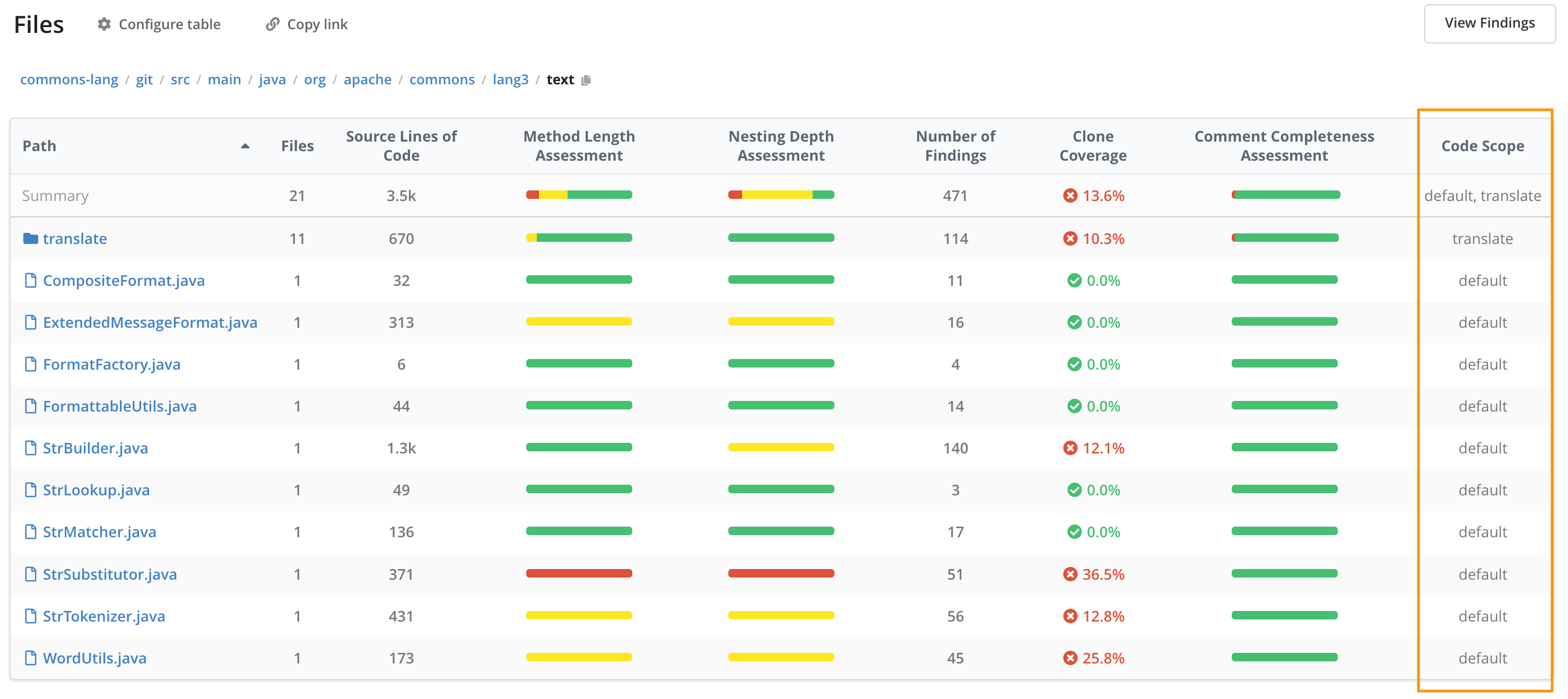
The Metrics perspective also now includes a dedicated view for Code Scopes. This allows you to see all relevant metrics broken down and aggregated individually for each code scope, providing detailed insights into the quality of different parts of your project.

You can configure Code Scopes in the project configuration to define subsets of your code based on file paths and content. Each Code Scope is associated with a specific analysis profile. A file is assigned to the first Code Scope it matches, ensuring that all files are analyzed with a unique set of rules. The predefined "default" Code Scope covers any files that do not match a user-defined scope.
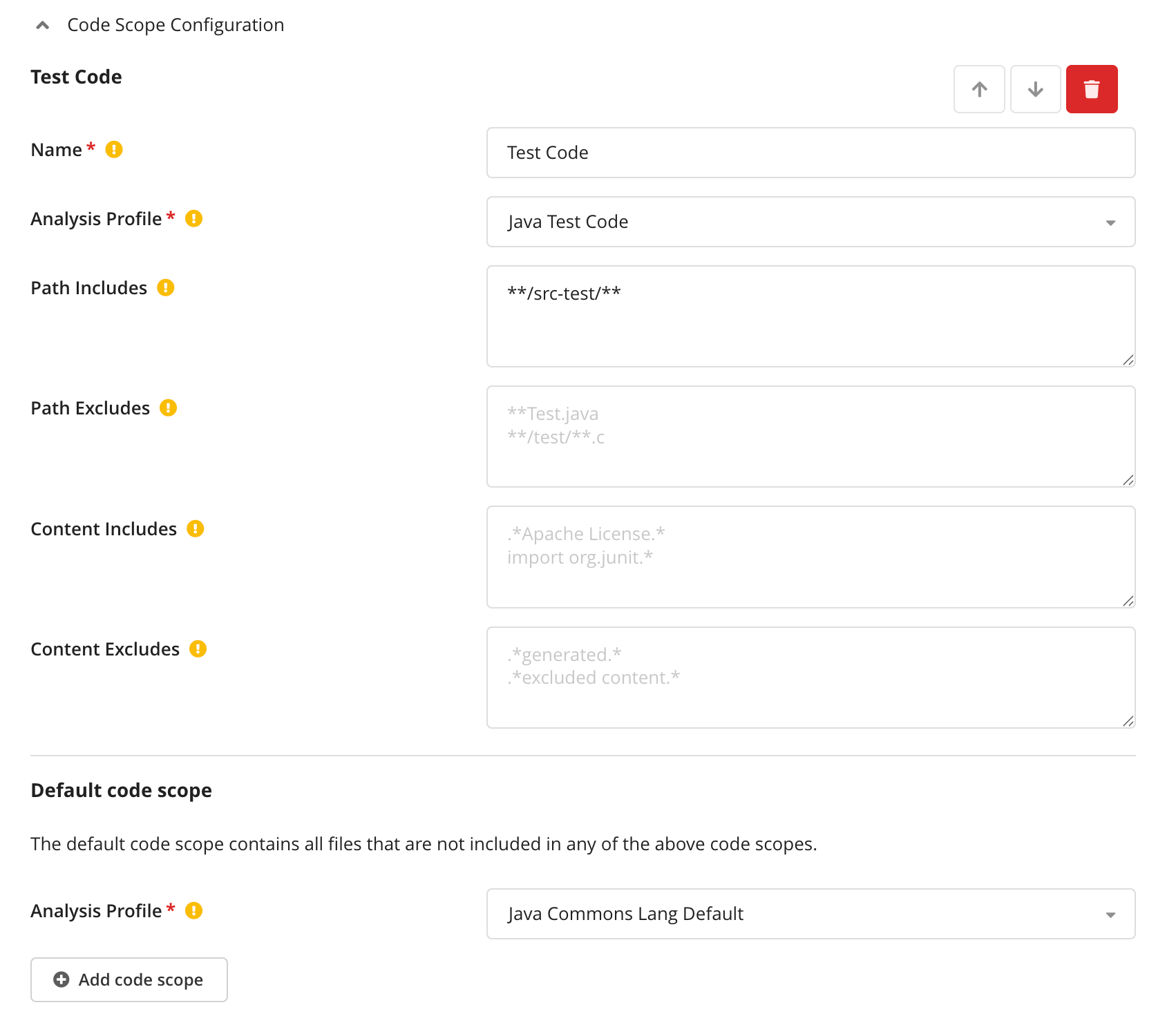
For detailed instructions on how to configure this feature, please refer to our documentation.
Kubernetes Analysis
Teamscale now supports the comprehensive analysis of Kubernetes resources, including static manifests, Helm charts, and Kustomizations. This new capability allows you to identify and address quality issues directly within your Kubernetes configurations.
Key highlights of this feature include:
- Automatic Detection: Teamscale automatically detects whether your Kubernetes resources are static manifests, part of a Helm chart, or a Kustomization. For Helm charts and Kustomizations, the analysis is performed on the full generated manifest, ensuring all included resources are evaluated in context.
- Dedicated Analysis Profile: A new Kubernetes (default) analysis profile is available, providing a starting set of checks tailored for Kubernetes. You can further customize this profile or create new ones to fit your project's specific needs.
- Helm Values Configuration: For Helm charts, you can specify the Helm values folder and Helm value files regex within the analysis profile to ensure Teamscale uses the correct values files when building the full manifest.
- Enhanced UI for Kubernetes Resources: In the Metrics perspective's code view, you can now toggle between the full manifest and the original source file for root Helm charts and Kustomizations. Furthermore, findings in full manifests are linked directly to their origin locations in the source files, making it easier to pinpoint and fix issues.
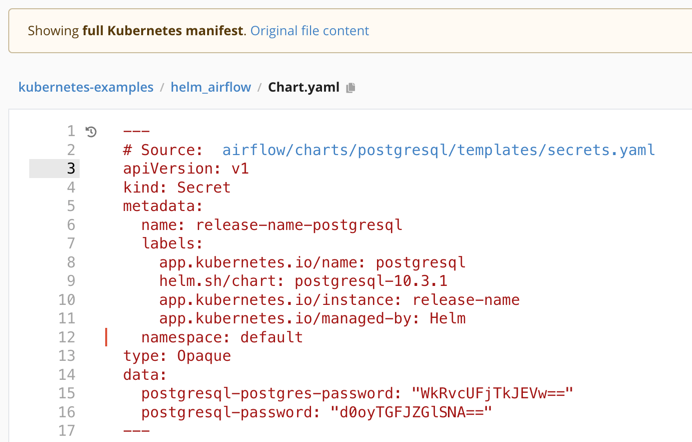
For further details and information on this feature and how to configure it within Teamscale, please refer to our documentation.
Approval Workflow for Excluded Findings
Starting this release Teamscale now offers an optional two-step workflow for marking findings as tolerated or false positives, designed to support organizations and teams that have to follow a rigorous findings' handling process (e.g. imposed by compliance regulations).
When enabled, a user can suggest finding exclusions, which are then placed in a pending state. These pending exclusions must then be approved by an authorized user with the necessary permissions before they become active. You can configure this workflow in the Project Configuration > Finding Exclusion Workflow section, where you can specify which red or yellow findings require approval and whether self-approval is permitted.
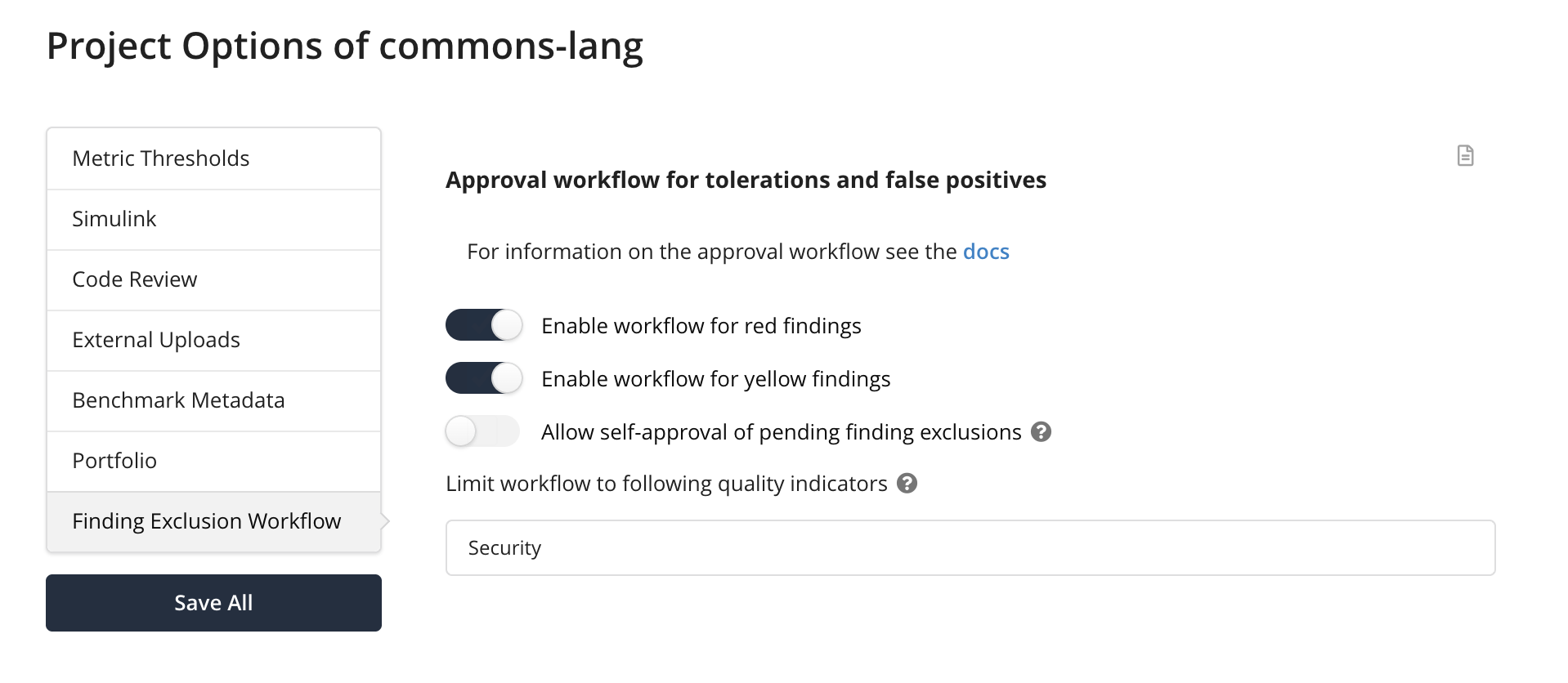
Key changes related to this feature include:
- Pending State: When the workflow is enabled, a user can suggest finding exclusions which are then placed in a pending state, waiting to be reviewed by a user with approval permissions.
- Exclusion Review: Users with the necessary permissions can now review pending exclusions and either approve or reject them, optionally providing a rationale.
- Approval Information: Once an exclusion is approved, the finding details will display who approved it and when.
- New Pending Exclusions Tabs: The Findings and Delta perspectives now include dedicated tabs for pending exclusions.

- Finding Details View: The finding details view also now indicates pending exclusions via a new hourglass icon and provides options to withdraw, approve, or reject them.
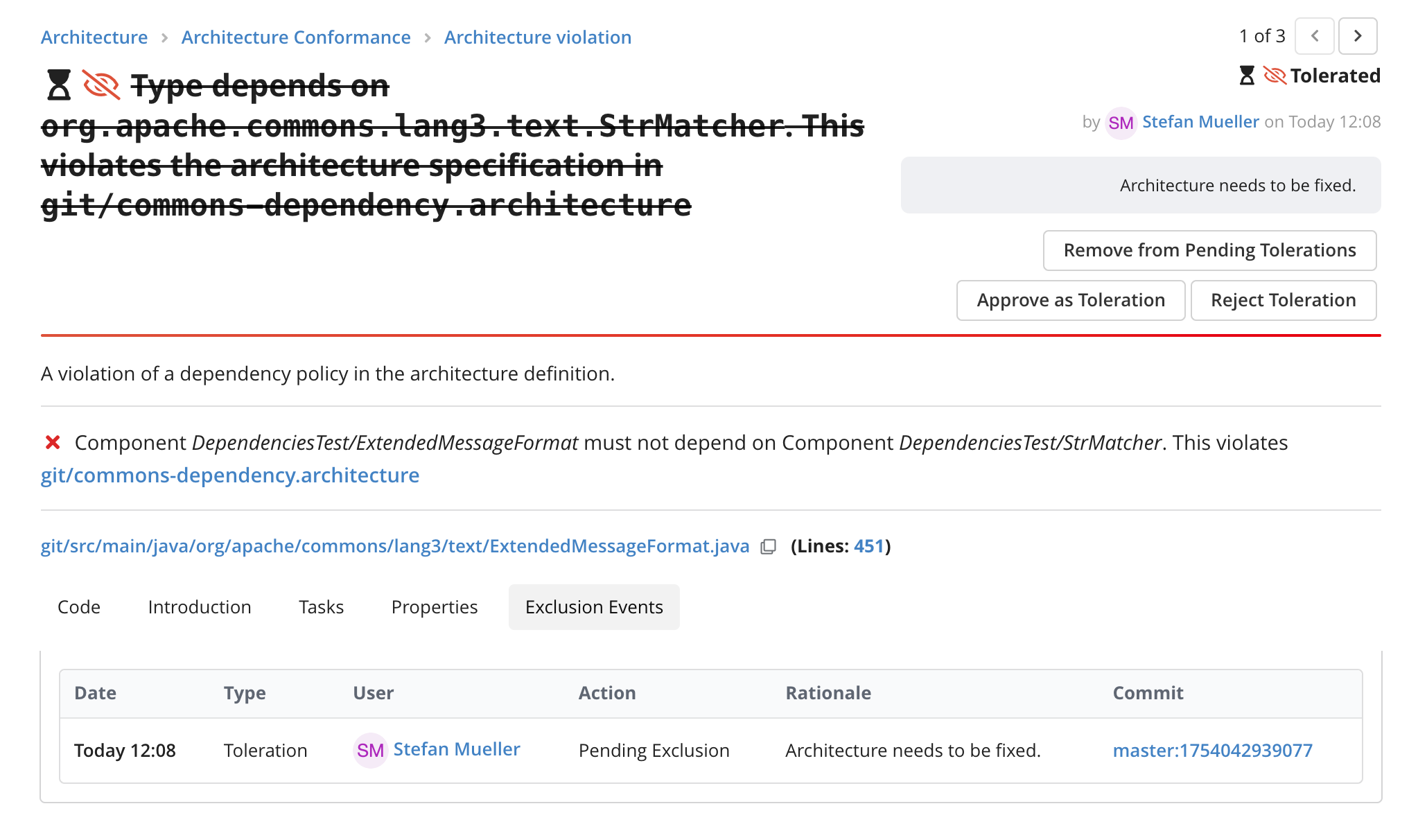
For more information and details about this feature, please refer to our documentation.
Web Interface
Merge Request Views: Force Vote Buttons
The Merge Request Overview view and individual Merge Request Details views now include new Force Vote buttons. These buttons allow you to manually trigger a re-vote on either a single merge request or all open merge requests within a project, without requiring a new commit.
This is particularly useful for project administrators who need to re-evaluate merge requests for testing purposes, after fixing an integration error, or to immediately get a vote after enabling a new quality gate.
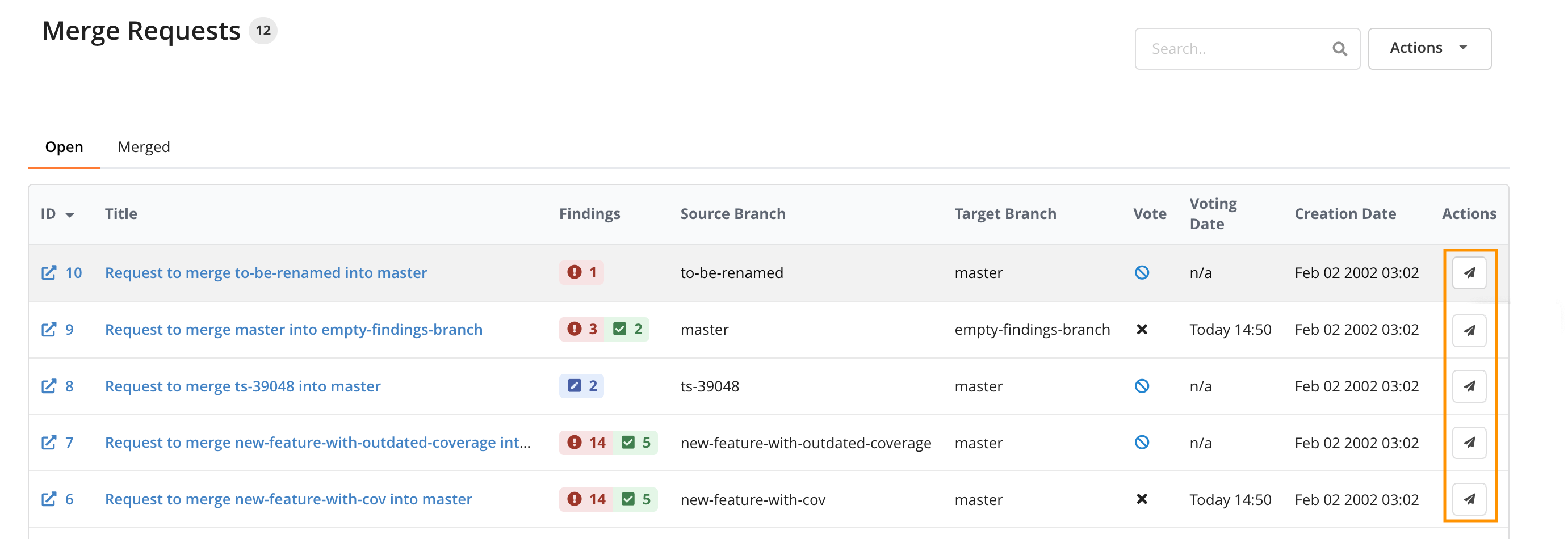
The individual force vote button is visible to all project participants, while the bulk force vote button is restricted to instance administrators.
Architecture Editor: Unmatched Types Count
The "Unmatched Types" hierarchy in the architecture editor now displays the total number of types within each directory or package. This new feature provides guidance for architects, allowing them to easily identify the largest parts of their codebase and prioritize their modeling efforts before adding them to the canvas.
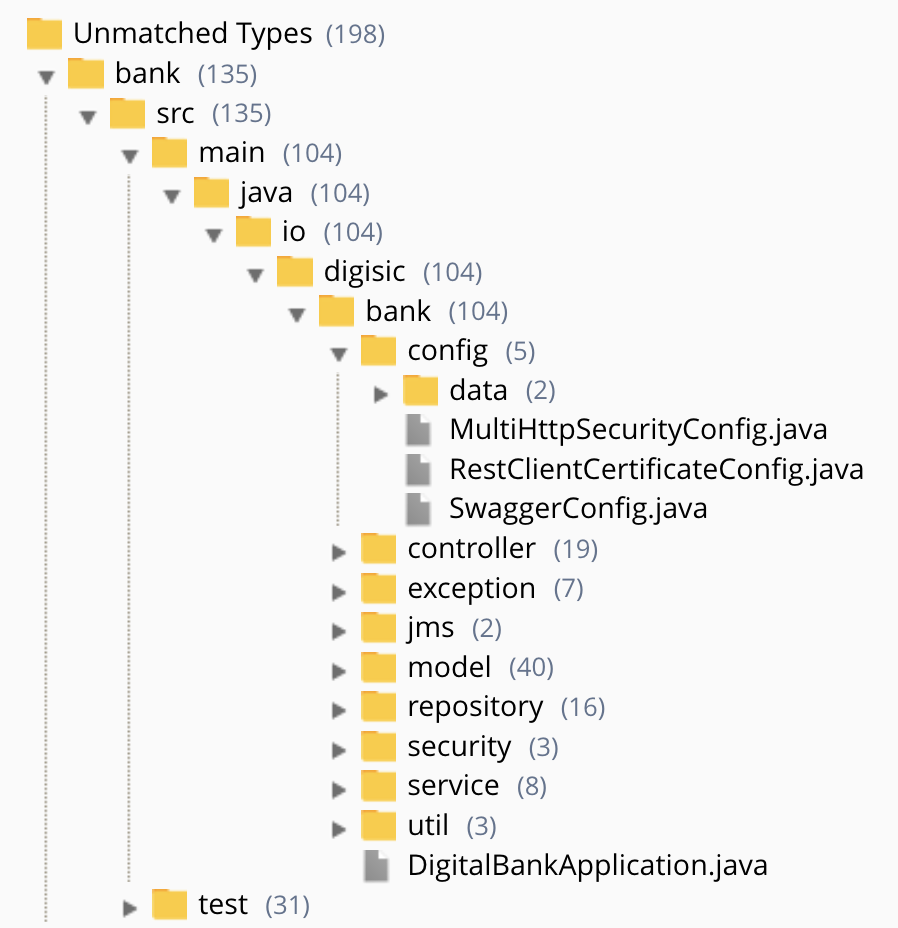
Test Gap Treemap
A new "Expand/Collapse all" button has been added to the dialog showing the included external uploads, providing a more convenient way to manage the list of relevant partitions.
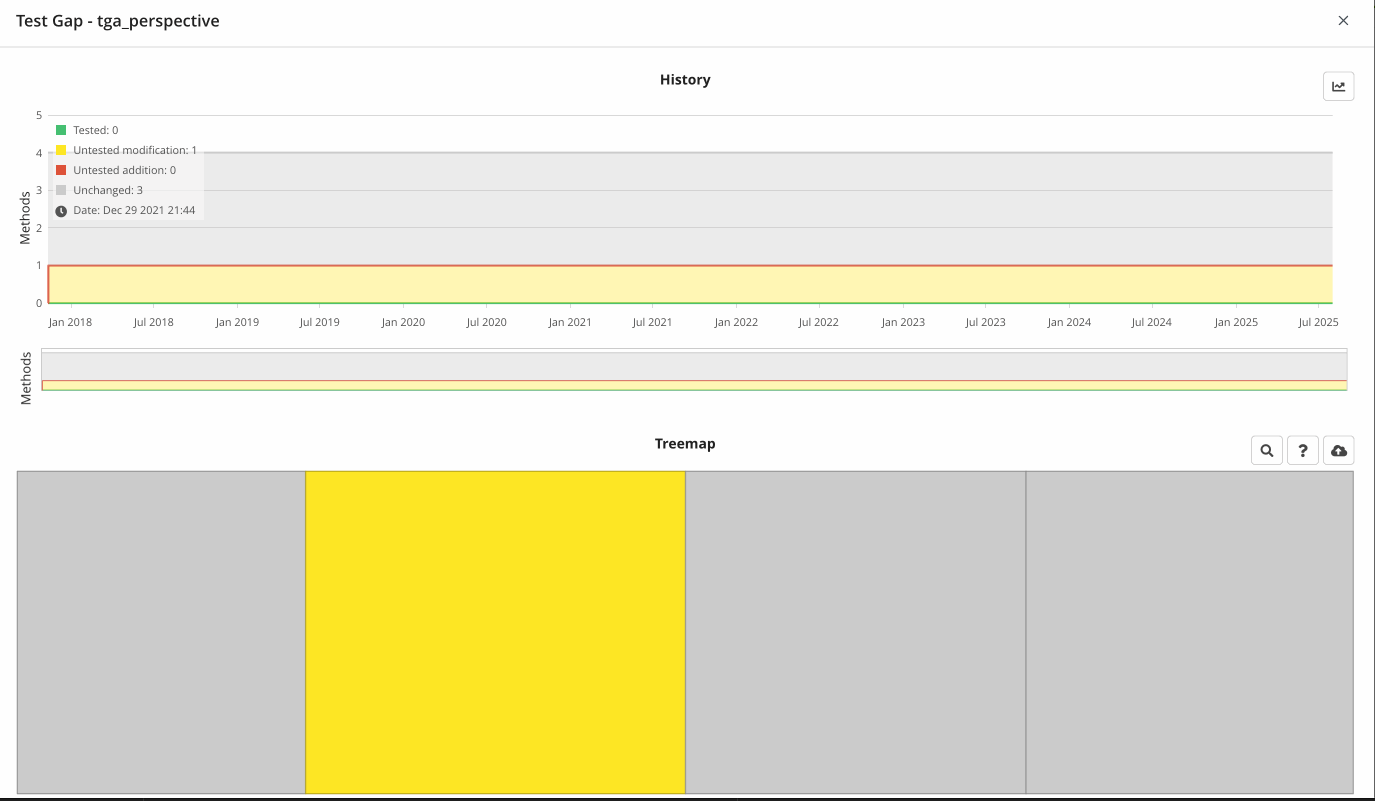
ABAP: SM59 HTTP Destination Support
The "Teamscale Findings" Code Inspector check for querying Teamscale findings at transport release or in SE80 now uses HTTP Destinations to configure the connection to the Teamscale server. This allows SAP administrators to centrally manage connection details, including server URL, authentication, and proxy settings, in SM59 instead of directly within the "Teamscale Findings" Code Inspector check's parameters.
New Checks & Check Options
- "Avoid using URLs without checking them inside endpoints" check (C#)
Plugins & Integrations
IntelliJ Plugin
The Teamscale IntelliJ plugin now shows findings directly in IntelliJ's Problems tab, in addition to the existing Teamscale findings view. This provides a unified list for all code quality issues and helps developers address them more efficiently.
This feature is enabled by default but can be configured in the plugin settings, if you prefer to see Teamscale findings only in their dedicated view.
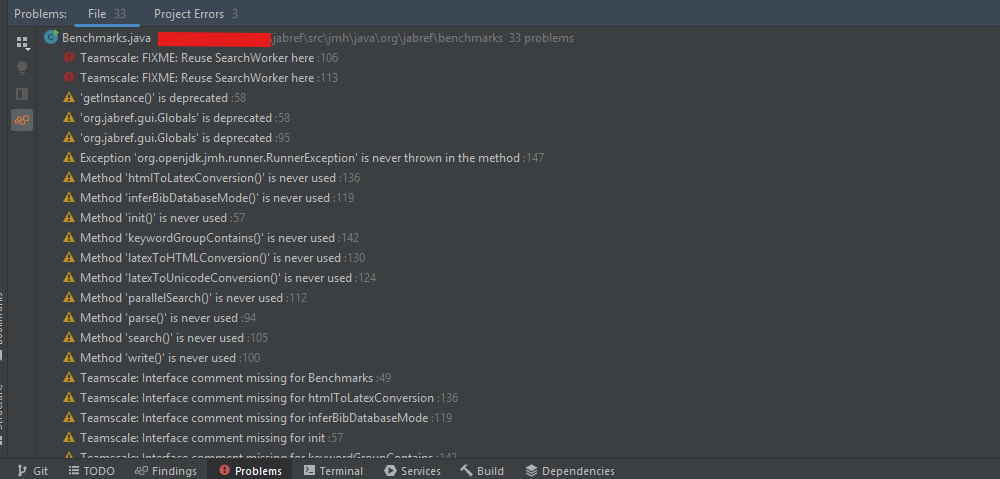
VS Code Plugin
The VS Code plugin now provides a Cancel button in the "Loading Findings" progress notification. This allows you to cancel long-running background requests to the Teamscale server, giving you more control over the analysis process.
Command-line client (teamscale-dev)
The teamscale-dev command-line client for developers now includes a global --license (or --licence) option. When used, this option prints licensing information for teamscale-dev, including its Apache 2.0 license and a pointer to a folder containing library licenses.
Administration & Operation
- New Prometheus metrics to monitor the size used in S3 by Teamscale, providing a breakdown per project and connector that distinguishes between used, total, and garbage data to help operators prioritize cleanup efforts.
